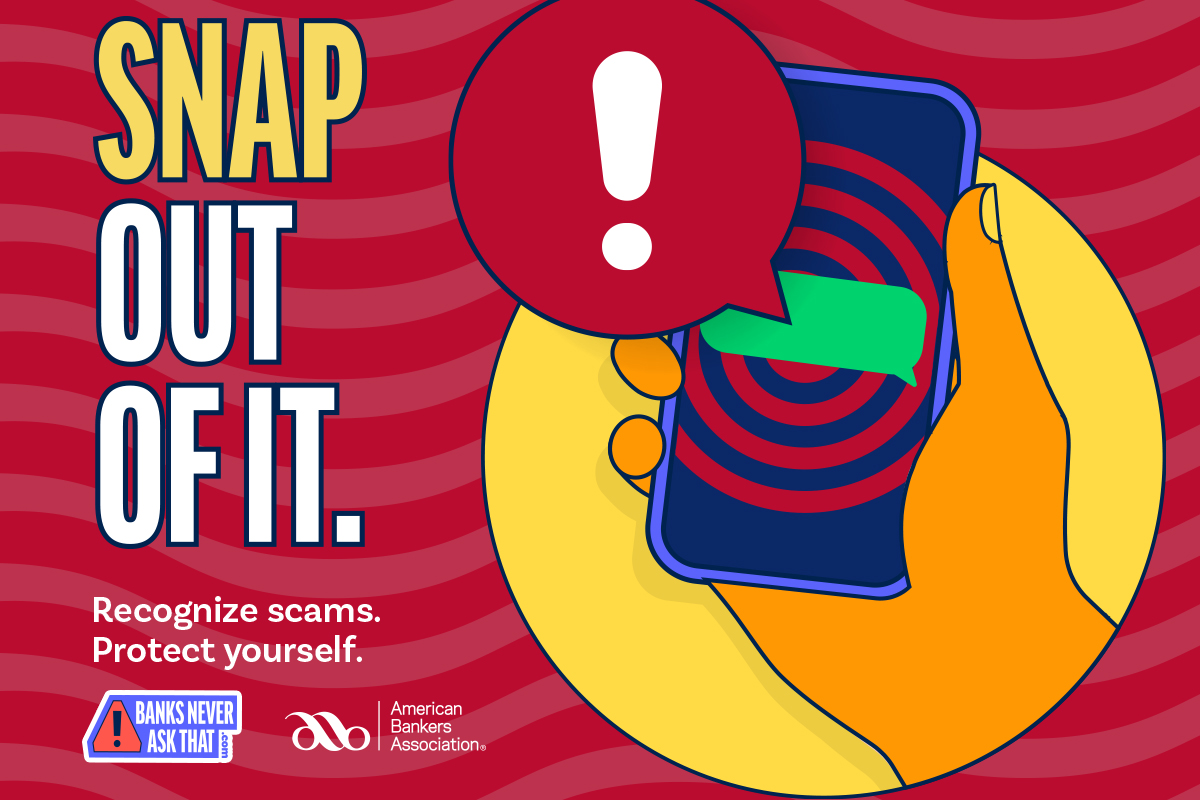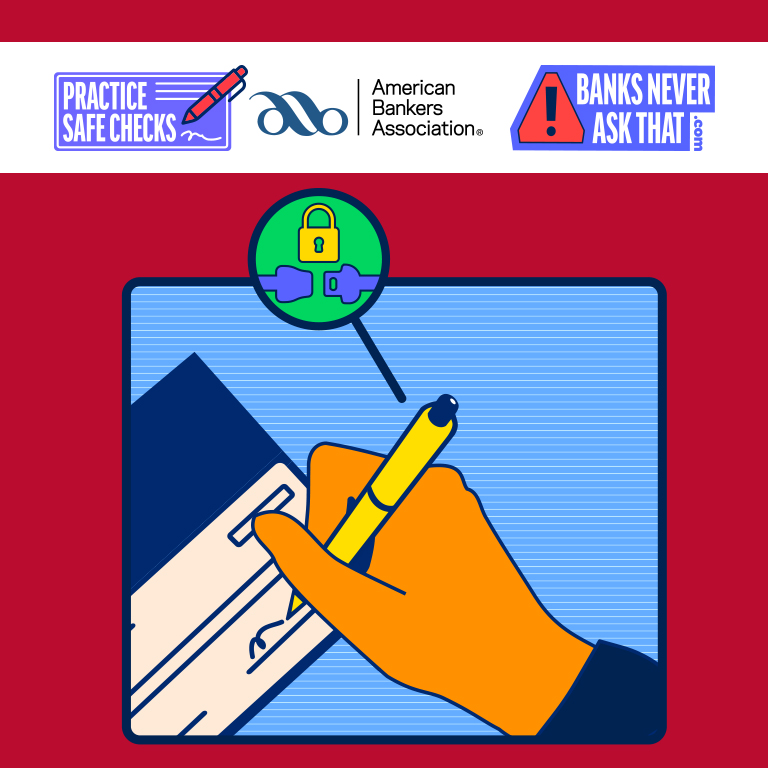5 red flags to spot a scam
Every day, thousands of people fall victim to fraudulent emails, texts, and calls from scammers pretending to be their bank, a loved one, the government, or law enforcement.
And in this time of expanded online and mobile banking use, the problem is only growing.
In fact, the Federal Trade Commission’s report on fraud estimates that American consumers lost a staggering $12.5 billion to phishing scams and other fraud in 2024, an increase of 25% over 2023.
These criminals are skilled at tricking you: convincing you to trust them, pay them, and act fast. It’s time to snap out of it.

Watch for these red flags of a scam
At First National Bank, we’re committed to helping you spot scams and prevent fraud.
This month, we’re joining the American Bankers Association and banks across the country in a nationwide effort to help you realize when you’re under a scammer’s trance — and to snap out of it so you avoid losing your money.
We want each of you to become a scam-spotting pro and to stop these criminals in their tracks.
If something ever feels off, stop, take a breath, and trust yourself. Then, look for these five red flags of a scam:
- You’re pressured to log into or send money with payment apps. Snap out of it.
- You’re contacted out of the blue and asked to act immediately and keep it a secret. Snap out of it.
- You get a text that includes a suspicious link. Snap out of it.
- You’re emailed an attachment that you weren’t expecting. Snap out of it.
- You’re asked for personal information like your PIN number, passwords, or Social Security number. Snap out of it.
You’ve probably seen some of these scams before, but that doesn’t stop a scammer from trying again and again.
Scammers use scare tactics and urgency to make you act without thinking, so educating yourself now is your best defense against fraud.
Additional fraud prevention resources
For more tips, videos, and an interactive quiz to help you keep criminals at bay, visit the Banks Never Ask That website.
We also have fraud prevention resources available on our blog and the fraud and identity theft prevention page on our website.
If you ever have questions about a potential scam, give our team a call at (605) 335-5200; we’re happy to help!


